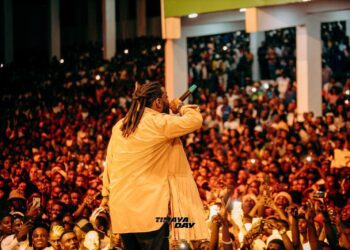Bayelsa is more than just a state; It’s a living, breathing culture where the past and present dance in harmony. From the rhythmic beats of tradition drums to the modern Afrobeats scene, from age-old fishing festivals to digital entrepreneurs redefining trade-Bayelsa is a place where tradition meets trend, shaping a unique identity that’s both deeply rooted and refreshingly dynamic.
1.The Nembe Festival – A Celebration of Culture, Heritage, and Royalty
Nestled in the heart of Bayelsa State, the Nembe Kingdom is a land rich in history, culture, and tradition. Every year, the Nembe Festival brings the community together in a grand celebration of their heritage, paying homage to their ancestors, reaffirming their identity, and showcasing the vibrancy of their customs.
A Kingdom of Great History
The Nembe people have a storied past as one of the most influential Ijaw groups in the Niger Delta. Historically, Nembe was a thriving trade hub and a powerful force during pre-colonial times, resisting external domination while maintaining its deep-rooted traditions. The festival is not just an occasion for merrymaking but a symbolic reminder of the kingdom’s strength, resilience, and unity.
Festival Highlights
The Royal Procession and Traditional Rites
A major highlight of the festival is the grand royal procession, where the Amayanabo (King) of Nembe and his council of chiefs take center stage. Dressed in elaborate robes, the king is accompanied by traditional drummers, praise singers, and a retinue of attendants. This regal display reflects the continuity of Nembe’s monarchy and its deep respect for traditional leadership.
As part of the festival’s opening, sacred rites are performed to honor the spirits of the ancestors, seek divine blessings, and pray for peace and prosperity in the land.
The Nembe Boat Regatta
Given Nembe’s deep connection to its waterways, the boat regatta is one of the most anticipated events of the festival. Expert canoeists and boatmen take to the rivers in beautifully decorated canoes, engaging in thrilling races that draw huge crowds. These regattas are not just for sport—they are a reflection of Nembe’s long history as a seafaring community.
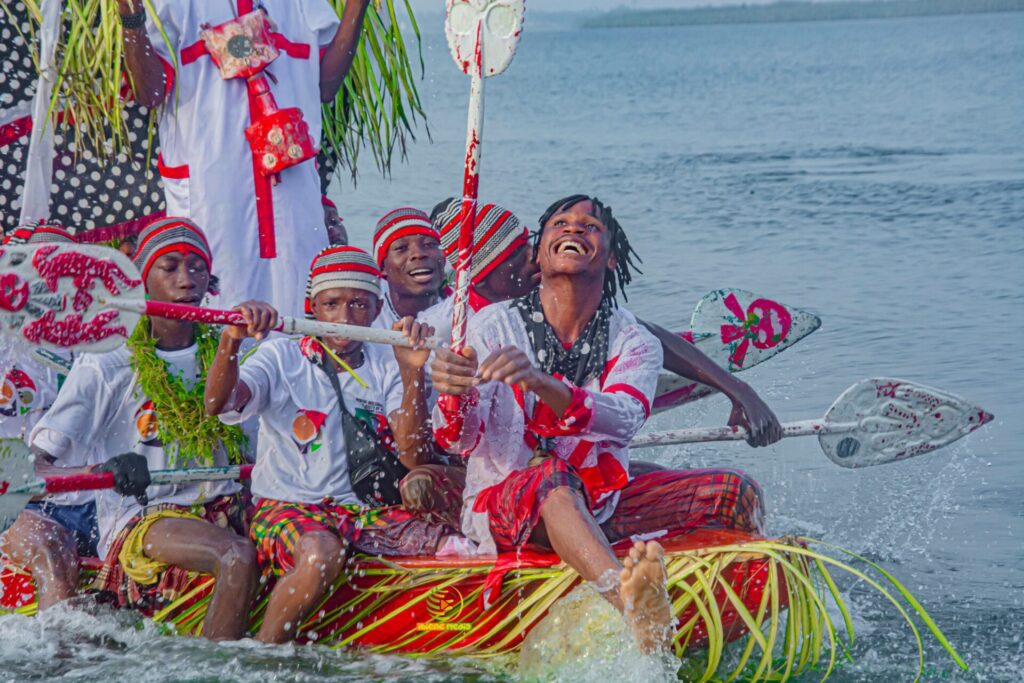
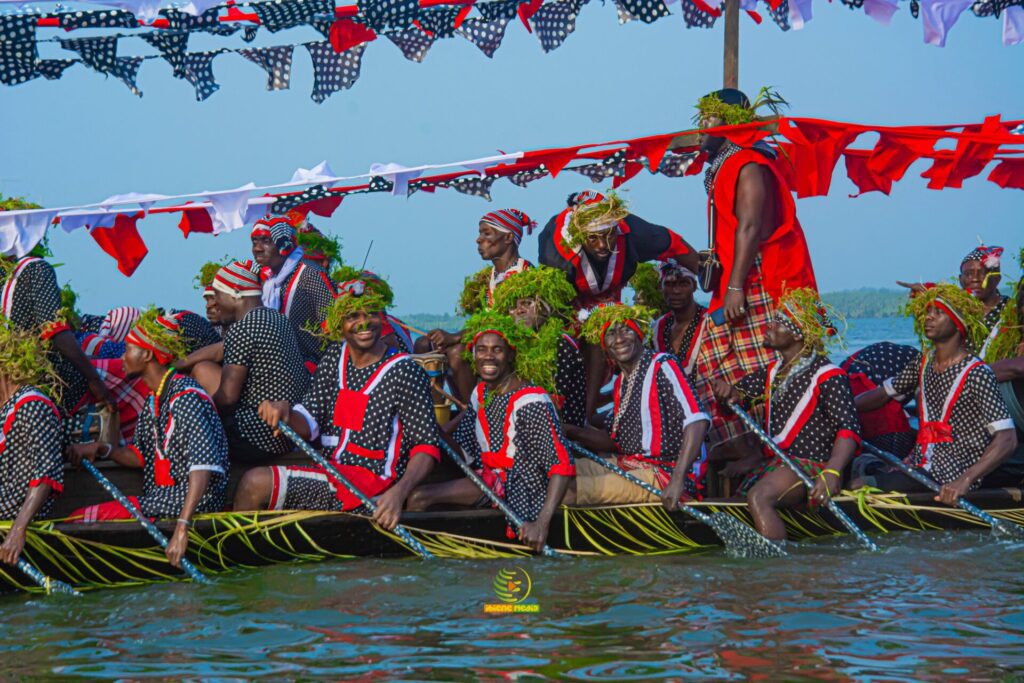
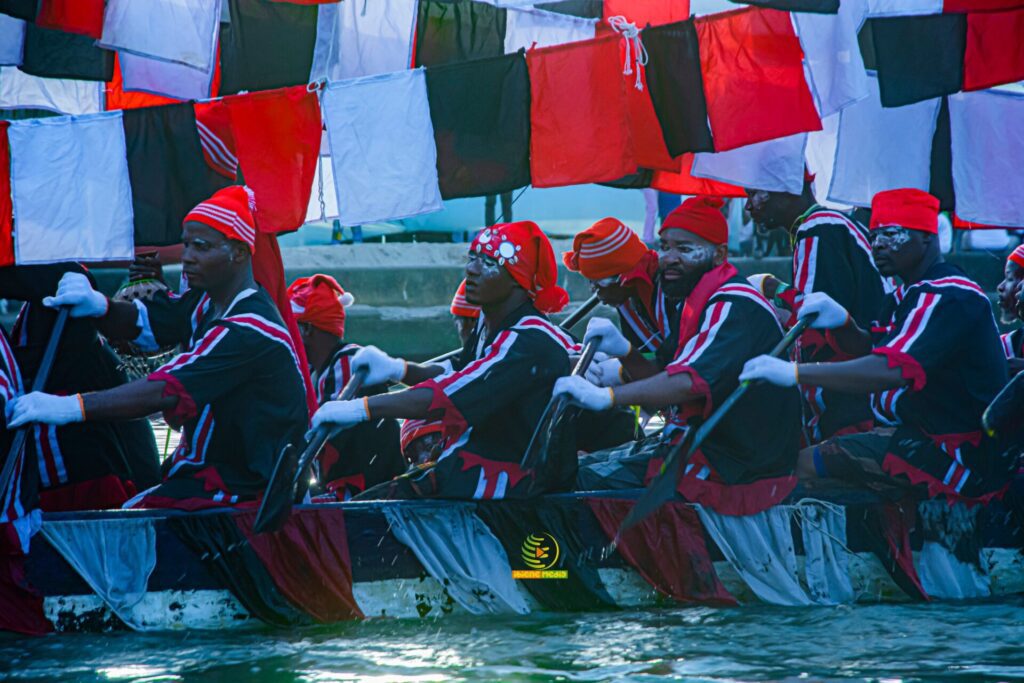
Masquerade Performances and Cultural Dances
Masquerades are an integral part of Ijaw culture, and the Nembe Festival offers a spectacular display of ancestral masquerades in vibrant, intricately designed costumes. Each masquerade represents a spiritual entity, and their performances are a mix of mystery, storytelling, and artistic expression.
Traditional dance groups also take the stage, performing with high-energy drum beats, rhythmic footwork, and call-and-response chants. The festival serves as a platform for young dancers to learn from elders, ensuring that cultural knowledge is passed down through generations.
Traditional Wrestling and Other Competitions
The festival also features exciting competitions, particularly traditional wrestling, where strong young men compete in friendly but intense matches. Wrestling holds cultural significance as a test of strength, skill, and bravery.
Other activities such as canoe jousting, tug-of-war, and storytelling contests add to the excitement, making the festival a wholesome experience for all ages.
Why You Should Experience the Nembe Festival
Beyond the colors, music, and dances, the Nembe Festival is a symbol of unity and pride for the Nembe people. It is a time to reconnect with their roots, share their culture with the world, and pass on traditions to younger generations.
For visitors, attending the festival offers a rare glimpse into the rich history and cultural depth of the Ijaw people, providing an unforgettable experience in one of Nigeria’s most vibrant communities.
Whether you are drawn by the royal pageantry, the thrill of the boat regatta, or the mesmerizing masquerade performances, the Nembe Festival is a celebration you don’t want to miss.
2. The Seigben Festival – Honoring the Water Spirits
Deep in the heart of Bayelsa, among the riverine communities of the Ijaw people, the Seigben Festival takes place in Amassoma. Stands as one of the most sacred and awe-inspiring celebrations. It is a time when the people come together to honor Seigben, the revered water spirit, seeking blessings, protection, and harmony with the natural forces that sustain them.
A Festival Rooted in Tradition
The Ijaw people have always had a deep spiritual connection with water, seeing it as both a life-giver and a force to be respected. The Seigben deity, believed to reside in the creeks and rivers, is worshipped as a guardian of the people, providing abundance, fertility, and safety for fishermen and travelers.
The festival is a blend of spirituality, tradition, and communal bonding, bringing people together to reaffirm their faith in the power of the water spirits.
Key Highlights of the Seigben Festival
The Sacred Rituals and Offerings
At the heart of the festival are the rituals performed by the chief priest, who serves as the bridge between the people and the water spirits. These ceremonies involve the offering of food, libations, and symbolic items to appease Seigben and ensure continued blessings. The rites are performed with deep reverence, and only selected elders and spiritual leaders participate in the most sacred aspects.
The Spirit Procession and Masquerades
One of the most captivating moments of the festival is the procession of the water spirits, where specially adorned masquerades, believed to embody Seigben, move through the community. Dressed in elaborate aquatic-themed costumes, these masquerades captivate the crowd with their mysterious movements and rhythmic dances.
Their presence is seen as a sign that the spirits have accepted the people’s offerings and are bestowing their goodwill upon them.
Traditional Music and Dance Performances
Music plays a key role in the Seigben Festival, with drumming, flutes, and traditional songs setting the rhythm of the celebration. The women, adorned in beautifully patterned wrappers and beads, perform synchronized dances that mimic the flow of water, while men engage in energetic steps that showcase strength and agility.
Water Rituals and Blessings
As a festival dedicated to the gods of water, a special moment is when people gather at the riverbanks for ritual baths and blessings. It is believed that immersing in the river during the festival cleanses the body of misfortunes and brings good health, prosperity, and divine protection.
Fishermen also offer their first catch of the day as a tribute to Seigben, reinforcing their bond with the water spirits.
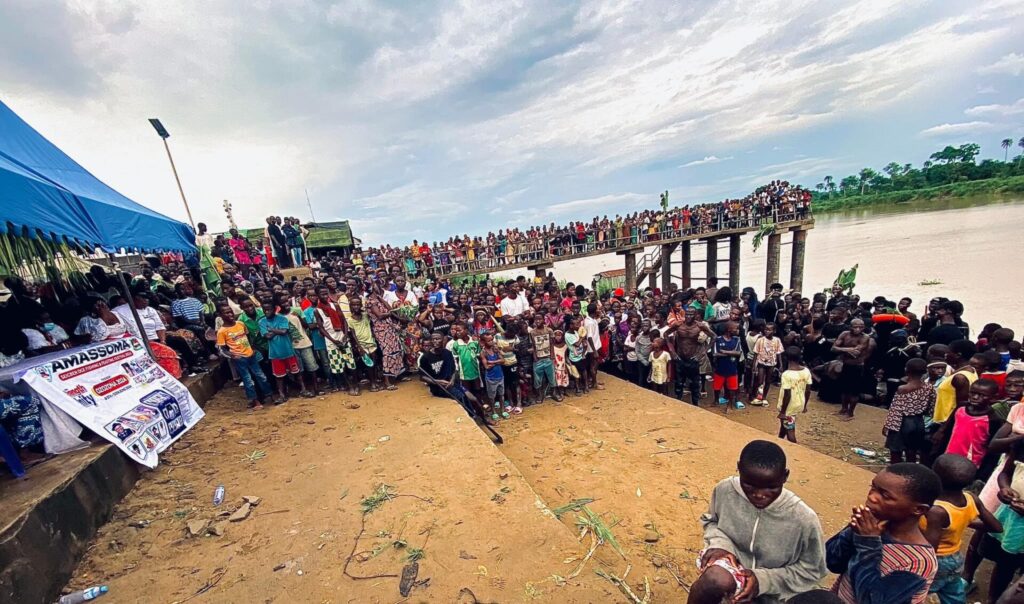
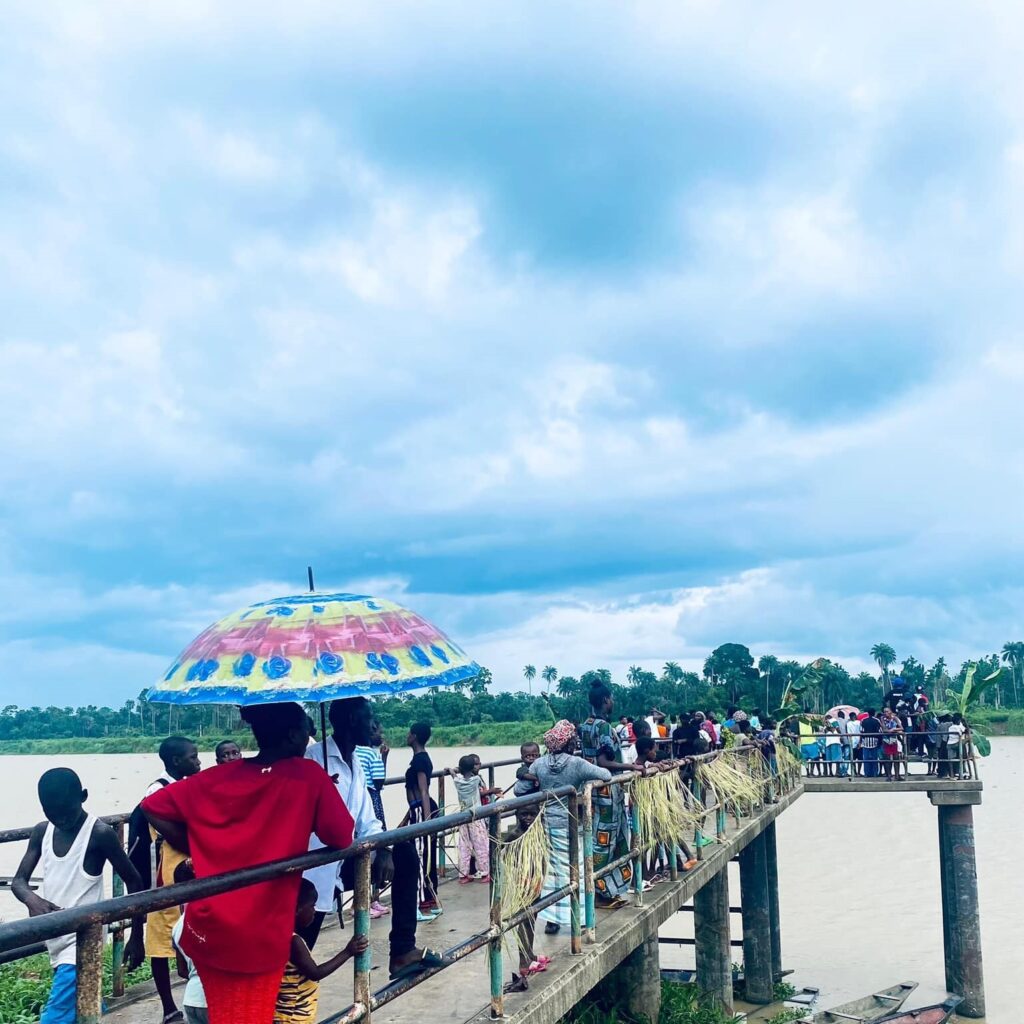
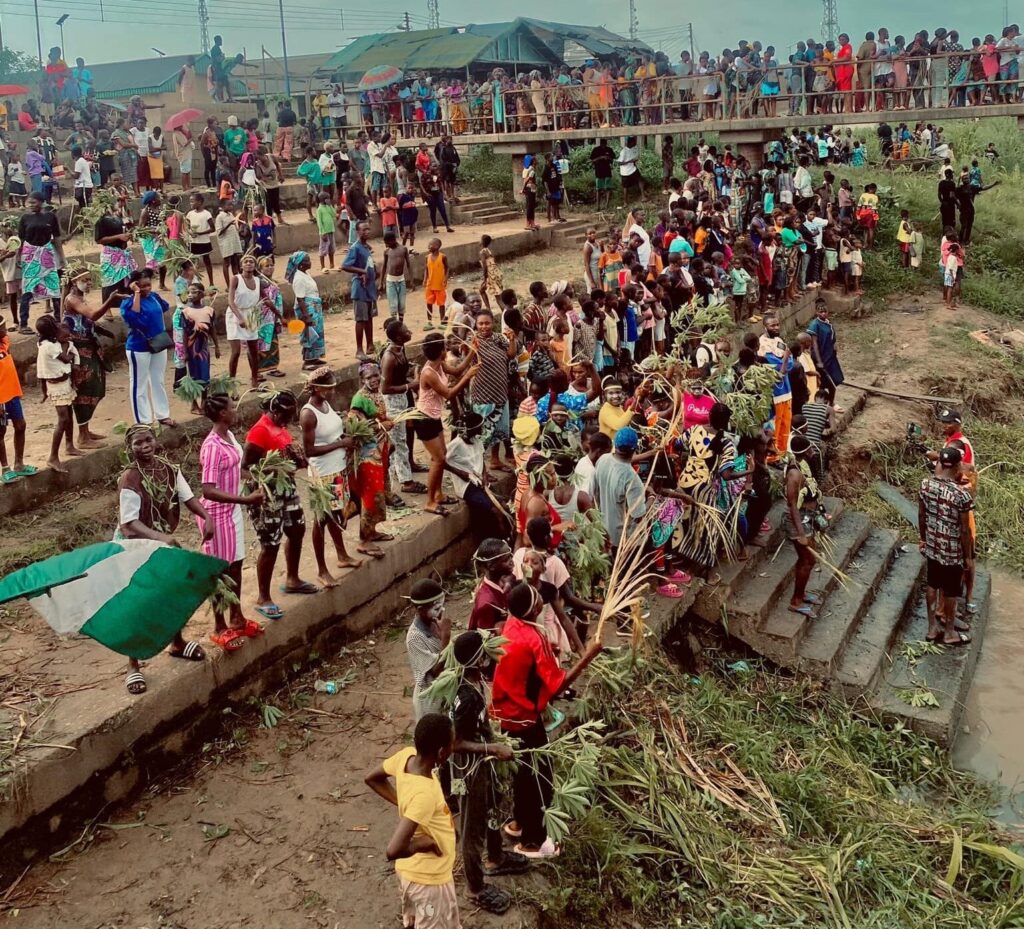
The Significance of the Seigben Festival
The Seigben Festival is more than just a cultural event; it is a spiritual tradition that connects the people to their ancestors and the divine forces of nature. It is a time for gratitude, renewal, and reaffirming the age-old belief that the waters are sacred and must be respected.
For visitors, experiencing the festival offers a rare insight into the Ijaw worldview, where nature, spirituality, and culture are deeply intertwined. The Seigben Festival remains a powerful symbol of heritage, unity, and the unbreakable bond between the Ijaw people and the waters that sustain them.
3. The Ijaw Masquerade Festival – A Visual Spectacle
In the heart of Bayelsa State, where traditions run deep and culture thrives, the Ijaw Masquerade Festival stands out as one of the most visually captivating celebrations. This festival is a grand display of artistry, spirituality, and storytelling, bringing to life the age-old beliefs and customs of the Ijaw people.
A Festival of Mystery and Tradition
Masquerades hold a sacred place in Ijaw culture, believed to represent spirits from the ancestral world. During the festival, these masked figures take over the streets and public squares, moving with grace, power, and mysticism. Each masquerade is not just a performer but a symbol of heritage, protection, and divine presence.
This festival serves as both entertainment and spiritual observance, where communities come together to witness the beauty and significance of their traditional masks.
Key Highlights of the Ijaw Masquerade Festival
The Grand Masquerade Parade
The heart of the festival is the parade of masquerades, where elaborately costumed figures emerge, each representing a different spiritual entity. Some are majestic and towering, while others are agile and fast-moving, captivating the crowd with their performances.
Each masquerade has its own distinct dance, color, and purpose—some bring blessings, others ward off evil, while some simply entertain with their theatrical movements.
Drumming and Traditional Music
The festival’s energy is driven by powerful drumming, flutes, and chants that accompany the masquerades. The beats guide their movements, creating a hypnotic rhythm that draws spectators into the celebration. The music and dances serve as a connection between the people and their ancestors, reinforcing the spiritual depth of the festival.
Storytelling Through Dance
Each masquerade tells a story, often depicting historical events, folklore, or moral lessons. Some mimic warriors in battle, while others embody animals, spirits, or mythical creatures. Their performances are both entertaining and educational, preserving the oral traditions of the Ijaw people.
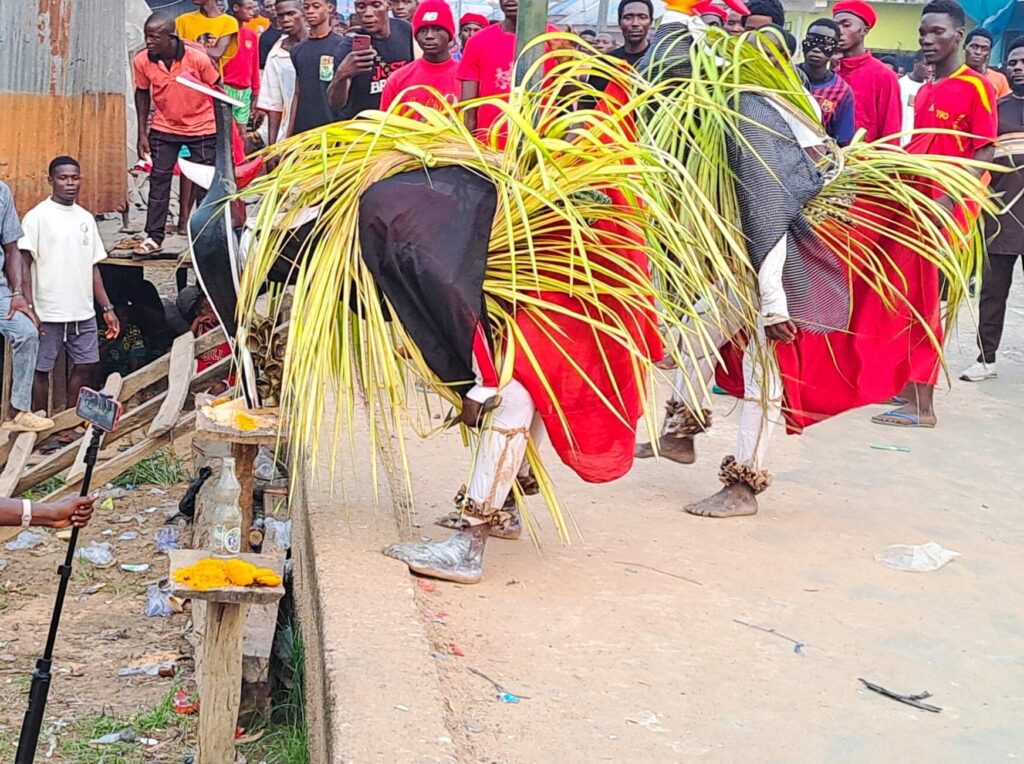
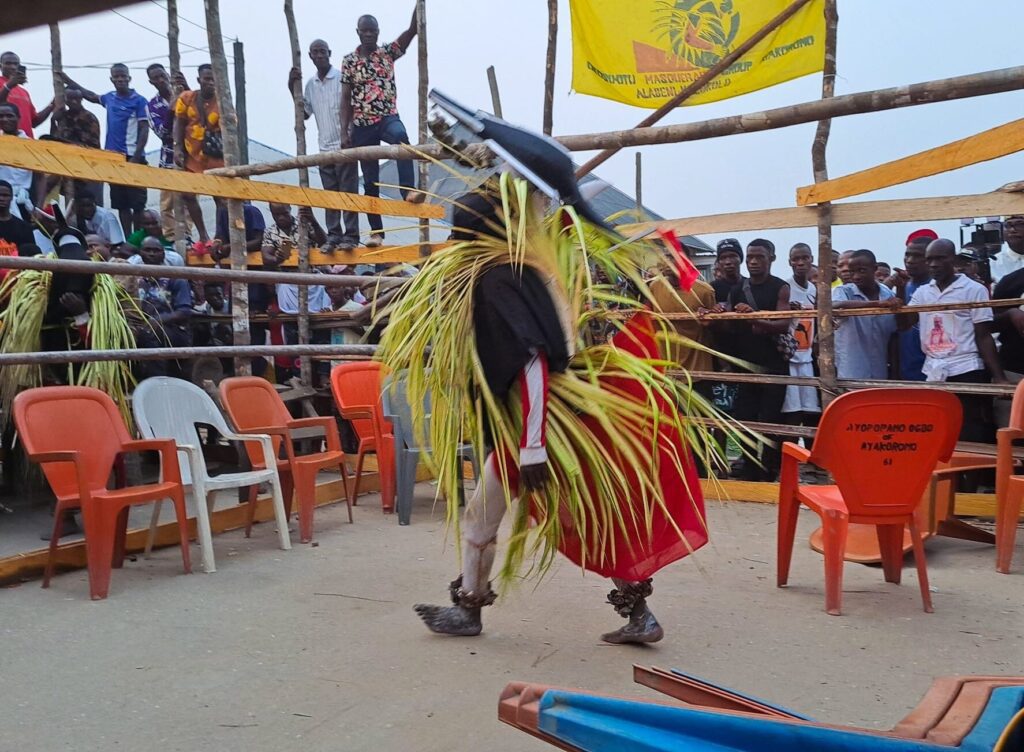
The Significance of the Ijaw Masquerade Festival
The Ijaw Masquerade Festival is more than a visual spectacle—it is a living tradition that connects past and present generations. It reinforces Ijaw identity, spirituality, and unity, keeping ancient customs alive in a rapidly changing world.
For anyone lucky enough to witness it, the festival is a mesmerizing experience, offering a glimpse into the rich cultural heritage of the Ijaw people.
4. Boro Day: Honoring a Niger Delta Hero
Every May 16th, Bayelsa State comes alive to honor Isaac Jasper Adaka Boro, a man whose name remains deeply etched in the history of the Niger Delta struggle. Boro Day is more than a remembrance, it’s a symbol of resilience, activism, and the fight for justice.
The Man Behind the Celebration
Isaac Boro was a fearless Ijaw nationalist, activist, and soldier who stood against the marginalization of his people. In 1966, he led the Niger Delta Volunteer Force (NDVF) in a bold but short-lived attempt to declare the Niger Delta Republic, demanding fair treatment and control over local resources. Though he later fought in the Nigerian Civil War, his early activism made him a legend. He died in battle at just 30 years old, but his legacy lives on.

Why Boro Day Matters
Boro Day is not just about remembering a hero, it’s a reminder of an unfinished fight. It speaks to the heart of every Niger Deltan who still seeks fairness, justice, and a better future for the region. It’s a day to honor courage, question the status quo, and push for real change. Boro Day is primarily celebrated in Kaiama, the hometown of Isaac Jasper Adaka Boro, located in the Kolokuma/Opokuma Local Government Area of Bayelsa State. For example, the 2024 edition of Boro Day was held in Kaiama Main Town.
Travel Tips for Festival-Goers
Best Time to Visit: November to March offers the most diverse festival experiences.
Accommodation: Yenagoa has a variety of hotels ranging from budget to luxury. Booking in advance is recommended during peak festival seasons.
Transportation: River transport is common for reaching remote festival locations. Hiring a local guide can enhance your experience.
Local Delicacies: Don’t miss out on iconic Bayelsa dishes like Banga soup, pepper soup, and fresh seafood during your visit.
Why You Should Experience Bayelsa’s Festivals
Whether you’re drawn to the spiritual depth of Seigben, the regal splendor of Nembe, or the artistic flair of the Bayelsa Book and Craft Festival, these celebrations offer a window into the state’s soul. They are more than just events—they are a testament to the resilience, creativity, and communal spirit of the Bayelsa people.
So, if you’re looking for an unforgettable cultural adventure, mark your calendar and experience the festival fever in Bayelsa!








